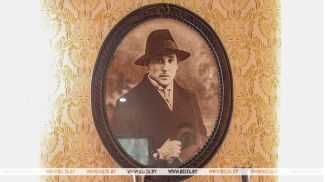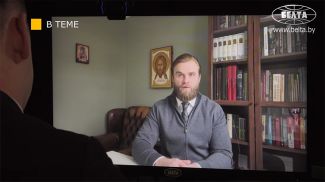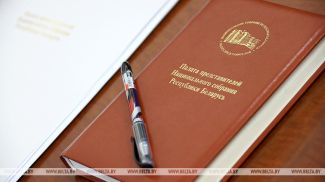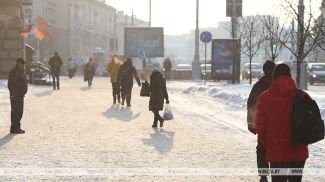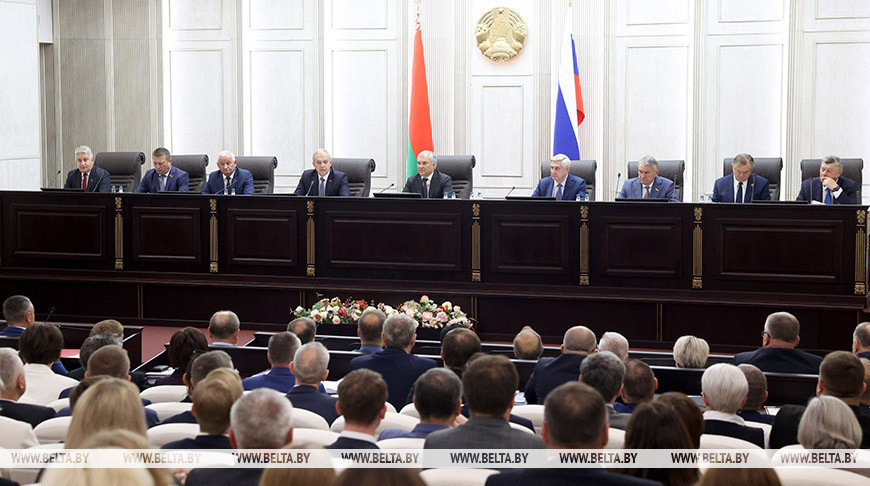
BREST, 16 June (BelTA) – The Parliamentary Assembly of the Union State of Belarus and Russia has adopted a statement on the protection of historical truth and the preservation of the memory of the Great Patriotic War of 1941-1945, BelTA has learned.
The 68th session of the Parliamentary Assembly was held in Brest on 16 June. The text of the statement was read out by Deputy Chairman of the Parliamentary Assembly Vadim Ipatov.
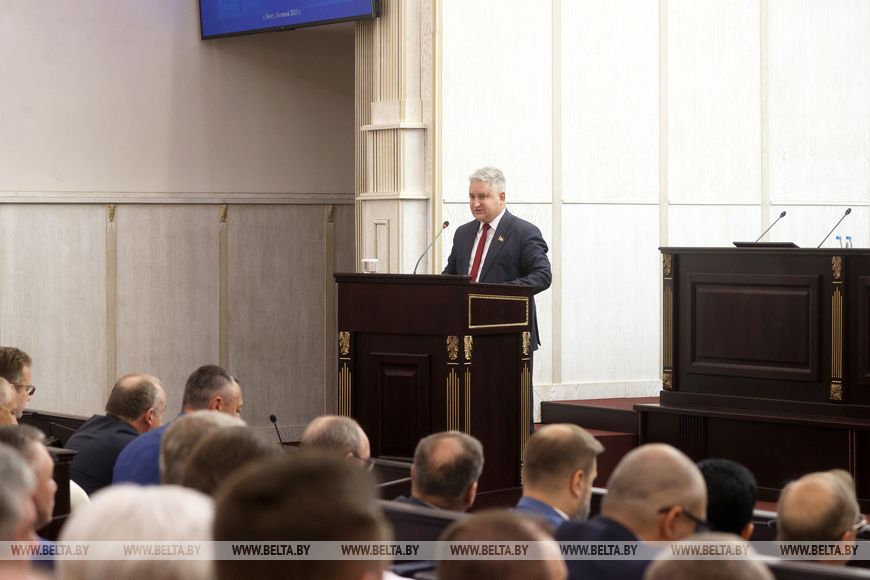
“This year marks the 80th anniversary of the Victory in the Great Patriotic War that took the lives of more than 27 million Soviet people. Courage and unity helped to defeat the occupiers who came to our land under Nazi banners. But the descendants of those who committed atrocities back then are once again trying to unleash a global conflict, distorting historical facts that have been indisputable for several generations. We once again see parades of SS veterans and the destruction of memorials in the Baltic States and Poland, and we hear the frenzied belligerent rhetoric of our former allies from Great Britain and France. Particularly dangerous are the Russophobic statements of German politicians who have forgotten or do not want to remember the harsh lessons of their country's history,” the statement reads.
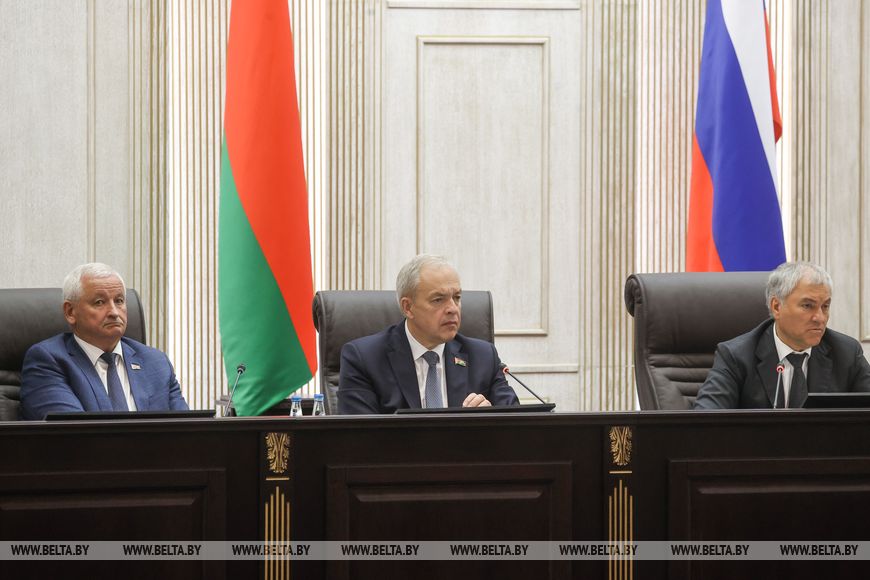
In some countries, history is being rewritten, facts about the Great Patriotic War, its causes and aftermath are being distorted. “European-style history is a vivid example of how, through false propaganda, white becomes black and vice versa. In Belarus and Russia, the memory of heroes is sacred, the great feat of ancestors who fought shoulder to shoulder against Nazism is honored. For eight decades, the historical truth about the Great Patriotic War has been passed down from generation to generation. We are jointly confronting today’s challenges,” reads the statement of the Parliamentary Assembly of the Belarus-Russia Union State.
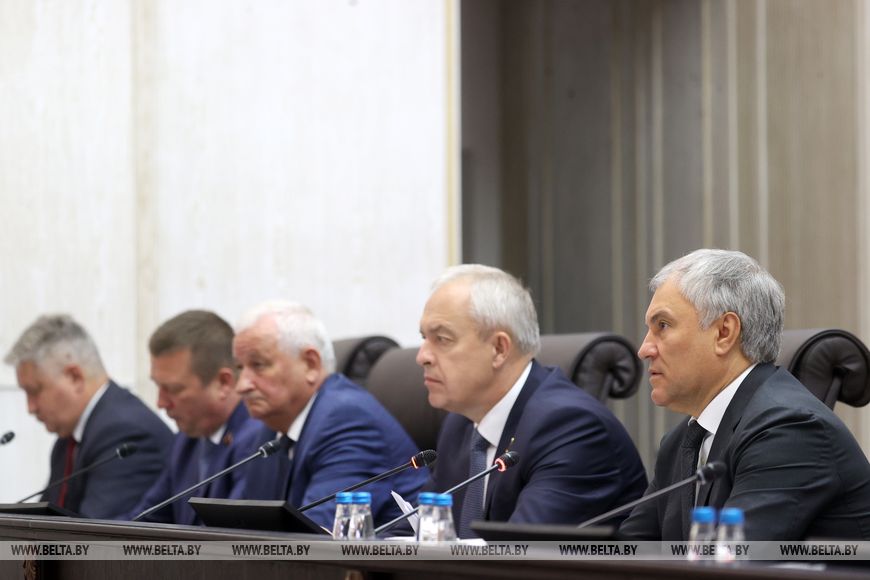
The Union State of Belarus and Russia resolutely fights and challenges any attempts to revive fascism and to distort the historical memory of the Great Patriotic War. “The international forum of the Union State ‘Great Heritage - Common Future’ held at the end of April showed that there are many like-minded people. A testimony to that is a big number of foreign delegations headed by speakers of parliaments that attended the forum. In their speeches at the forum, the presidents of Belarus and Russia, Aleksandr Lukashenko and Vladimir Putin, voiced very important things: we must act as a united front in defense of the historical truth about the events of the Great Patriotic War, preserve our common historical legacy and pass it on to future generations,” Vadim Ipatov read.
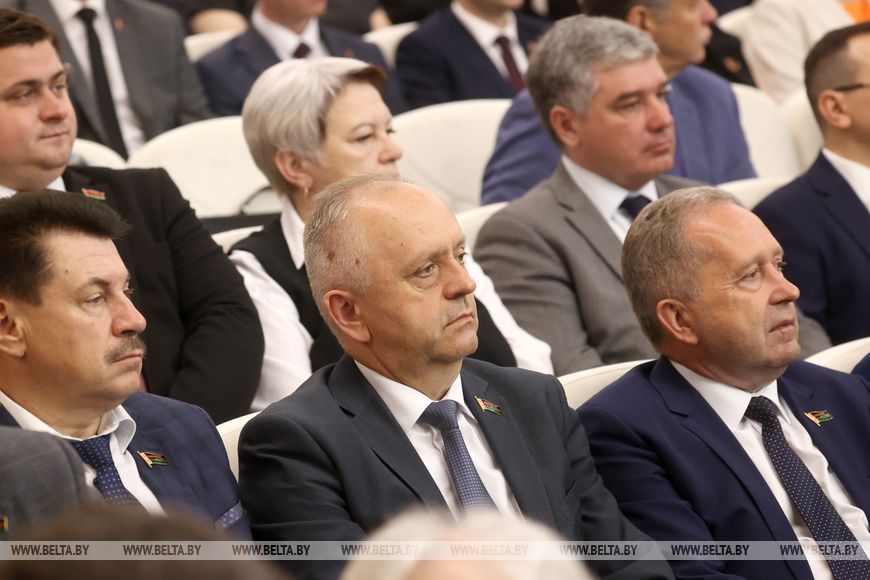
The draft statement on the protection of historical truth, the preservation of the memory of the Great Patriotic War lays out common approaches of the Union State MPs to international relations: These relations should be built based on the principles of multipolarity and development, the protection of common history, and the patriotic education of youth. “This statement is our appeal to fellow parliamentarians from various countries to sacredly preserve the memory of the Great Patriotic War of 1941-1945, to pass it on from generation to generation,” the deputy chairman of the Parliamentary Assembly added.
The 68th session of the Parliamentary Assembly was held in Brest on 16 June. The text of the statement was read out by Deputy Chairman of the Parliamentary Assembly Vadim Ipatov.

“This year marks the 80th anniversary of the Victory in the Great Patriotic War that took the lives of more than 27 million Soviet people. Courage and unity helped to defeat the occupiers who came to our land under Nazi banners. But the descendants of those who committed atrocities back then are once again trying to unleash a global conflict, distorting historical facts that have been indisputable for several generations. We once again see parades of SS veterans and the destruction of memorials in the Baltic States and Poland, and we hear the frenzied belligerent rhetoric of our former allies from Great Britain and France. Particularly dangerous are the Russophobic statements of German politicians who have forgotten or do not want to remember the harsh lessons of their country's history,” the statement reads.

In some countries, history is being rewritten, facts about the Great Patriotic War, its causes and aftermath are being distorted. “European-style history is a vivid example of how, through false propaganda, white becomes black and vice versa. In Belarus and Russia, the memory of heroes is sacred, the great feat of ancestors who fought shoulder to shoulder against Nazism is honored. For eight decades, the historical truth about the Great Patriotic War has been passed down from generation to generation. We are jointly confronting today’s challenges,” reads the statement of the Parliamentary Assembly of the Belarus-Russia Union State.

The Union State of Belarus and Russia resolutely fights and challenges any attempts to revive fascism and to distort the historical memory of the Great Patriotic War. “The international forum of the Union State ‘Great Heritage - Common Future’ held at the end of April showed that there are many like-minded people. A testimony to that is a big number of foreign delegations headed by speakers of parliaments that attended the forum. In their speeches at the forum, the presidents of Belarus and Russia, Aleksandr Lukashenko and Vladimir Putin, voiced very important things: we must act as a united front in defense of the historical truth about the events of the Great Patriotic War, preserve our common historical legacy and pass it on to future generations,” Vadim Ipatov read.

The draft statement on the protection of historical truth, the preservation of the memory of the Great Patriotic War lays out common approaches of the Union State MPs to international relations: These relations should be built based on the principles of multipolarity and development, the protection of common history, and the patriotic education of youth. “This statement is our appeal to fellow parliamentarians from various countries to sacredly preserve the memory of the Great Patriotic War of 1941-1945, to pass it on from generation to generation,” the deputy chairman of the Parliamentary Assembly added.





